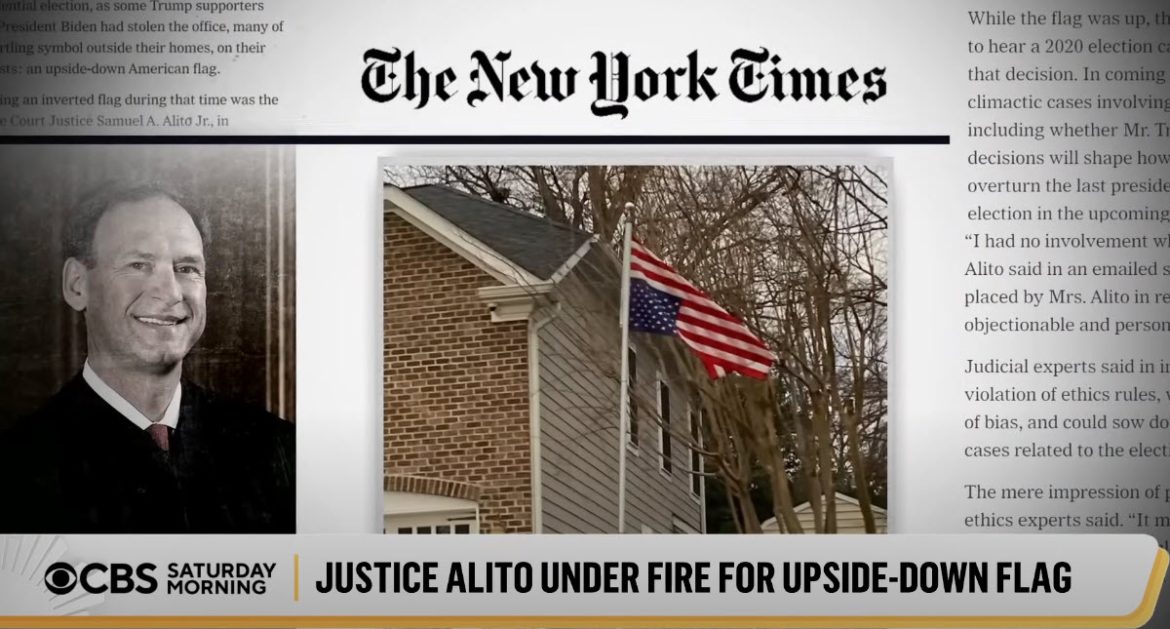Supreme Court Justice Samuel Alito is under fire from Democrats following a report that an upside-down American flag was flown outside his home shortly after the January 6 attack on the U.S. Capitol. The “New York Times” published a photo taken by a neighbor of the flag at Alito’s residence in Alexandria, Virginia, just days after a pro-Trump mob stormed the Capitol. The upside-down flag, often seen as a distress signal, has also been associated with former President Donald Trump’s unfounded claims that President Joe Biden stole the 2020 election.
Justice Alito has denied any involvement in flying the flag, explaining to the Times that his wife hung it after a confrontation with a neighbor. Despite this explanation, the incident has led Senate Judiciary Committee Chair Dick Durbin to call for Alito’s recusal from all cases related to the 2020 election and the Capitol riot. Durbin and other Democrats argue that the flag incident raises questions about Alito’s impartiality in these matters.
Pennsylvania Senator John Fetterman addressed the controversy on CNN’s “State of the Union,” describing the incident as “bizarre” and “surreal.” While Fetterman expressed his doubts about Alito voluntarily recusing himself, he underscored the unusual nature of the situation. Fetterman’s comments reflect a broader sentiment among Democrats, who are increasingly concerned about the perceived biases of Supreme Court justices in politically charged cases.
The call for recusal highlights ongoing tensions over the judiciary’s role in politically sensitive issues, particularly those related to the 2020 election and the subsequent Capitol riot. Critics of Alito point to the symbolic significance of the upside-down flag and its timing as reasons to question his ability to remain neutral in related cases.
As the controversy unfolds, it adds to the broader debate about judicial ethics and the appropriate conduct of Supreme Court justices. The demands for Alito’s recusal are part of a larger push by some lawmakers to ensure that the judiciary remains free from political influence and maintains public trust in its impartiality.



